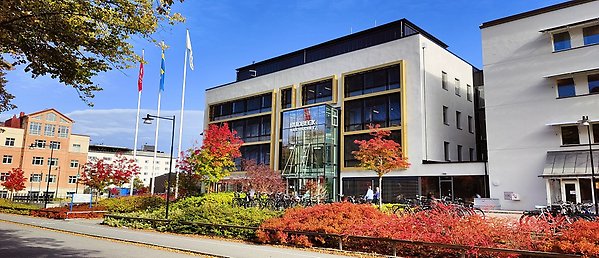DDLS Research area conference
March 22 @ 08:30 – 17:00 CET
Welcome to join a full day Research area conference within The SciLifeLab and Wallenberg national program for Data-Driven Life Science!
The practice of life science is continuously becoming more data-dependent. The amount and complexity of data is growing exponentially, and more scientific discoveries are enabled when data is openly available to researchers across the world. This is the basis for the SciLifeLab and Wallenberg National Program on Data-Driven Life Science (DDLS).
The program focuses on four strategic areas for data-driven research, all of which are essential for improving the lives of people as well as animals and nature, detecting and treating diseases, protecting biodiversity and creating sustainability.
- Data-driven Cell and molecular biology
- Data-driven Epidemiology and Biology of infections
- Data-driven Evolution and biodiversity
- Data-driven Precision medicine and diagnostics
The conference will focus on enthusing research within the four research areas and aims to bring together researchers within the field for discussion and sharing the latest within the research areas. The meeting will offer an exciting compilation of keynotes, special lectures within the four fields and opportunities to meet and discuss with prominent researchers.
Anyone with interest in the data-driven research field is welcome to participate. The full-day conference will be virtual (Zoom).
Date: March 22, 2022.
Maximum of 500 participants.
Program
| 08:30 | Welcome Olli Kallioniemi, Director SciLifeLab Presentation of Research areas and future plans Research area leads |
| 08:45 | Keynote: Big data in biology – what the pandemic has taught us. Professor Ewan Birney CBE FRS FMedSci Deputy Director General, EMBL Director, EMBL-EBI |
| 09:15 | Break |
| 09:25 | Data-driven Cell and molecular biology, Erik Lindahl Live-Seq: Transcriptomic Profiling of Living Single Cells (25’+5′) Orane Guillaume-Gentil, ETH Zürich How personalised is your immune system? (25’+5′) Aleksandra Walczak, Ecole Normale Supérieure Predicting the structure of protein complexes using alphafold (25’+5′) Arne Elofsson, Stockholm University |
| 11:05 | Data-driven Precision medicine and diagnostics, Janne Lehtiö Longitudinal analysis of health data at population scale (35’+5′) Søren Brunak, University of Copenhagen Life beyond the pixels: machine learning in single cell microscopy (20’+5′) Peter Horvath, Biological Research Centre, Szeged Integration and interpretation of multiomics data using graph analytics (20’+5′) Alberto Santos Delgado, University of Copenhagen/Boehringer Ingelheim |
| 12:35 | Lunch |
| 13:05 | Welcome back! Moderator |
| 13:10 | Data-driven Epidemiology and Biology of infections, Oliver Billker Leveraging genomic data to identify and track emerging bacterial pathogens (25′) Laura Michelle Carroll, EMBL, newly recruited DDLS fellow Using functional genomics & functional transcriptomics to understand Salmonella infection biology (25′) Jay Hinton, University of Liverpool Tracking the rise and fall of SARS-CoV-2 variants in the UK with over two million viral genomes (25′) Jeffrey Barrett, Wellcome Sanger Institute/Nightingale Health Panel discussion (15′) |
| 14:40 | Break |
| 14:50 | Data-driven Evolution and biodiversity, Fredrik Ronquist Biodiversity research in the era of big data (25’+5′) Tobias Andermann, Gothenburg University Inferring evolution using genomic data: why probabilistic modeling is important (25’+5′) Nicolas Lartillot,CNRS / University of Lyon 1 Using population genetic inference to gain medically relevant insights (25’+5′) Ida Moltke, University of Copenhagen |
| 16:20 | Break |
| 16:30 | Discussion in Research specific breakout rooms (25′) |
| 16:55 | Closing words |
| 17:00 | End of day |
The conference is part of the SciLifeLab and Wallenberg national program for the DDLS program, funded by the Alice and Knut Wallenbergs Foundation.
events@SciLifeLab.se

